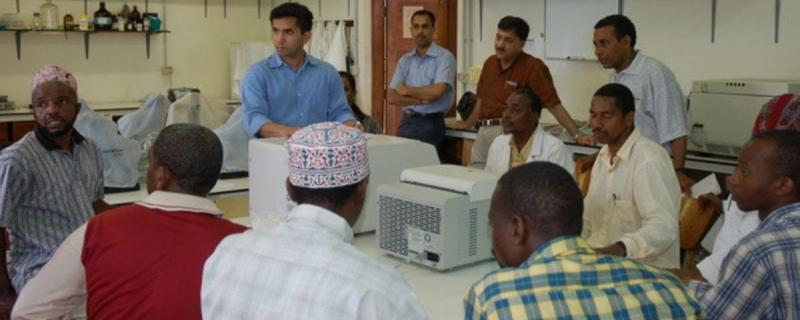We all remember learning to read—at first, we were taught to read each letter or sound at a time laboriously. Eventually, we picked up reading entire words and sentences effortlessly. But, it is not yet clear as to what changes in our brain when we learn to read. In a recent study, researchers at the Indian Institute of Science, Bengaluru, have identified these changes in the brain changes that help in visually processing the words and helps us to read efficiently. The study was published in the journal Psychological Science and was funded by the Department of Biotechnology-Indian Institute of Science (IISc) Partnership Programme and the Wellcome Trust/DBT India Alliance.
Society
An international study, led by researchers from the USA, which also included researchers from India, have designed a point-of-care testing approach for individuals suffering from TB. The study, published in the journal Science Translational Medicine and supported in part by the Bill and Melinda Gates Foundation, proposes a rapid, cost-effective, and readily accessible triage test kit that can be used at the site of patient care.
Researchers from the Indian Institute of Science (IISc), Bengaluru study how a protein called lysozyme, an integral component of our immune system, causes persistent nerve pain during nerve injury.
In a recent study, Dr Sachdev and an international team of researchers have shown that India’s mortality rate due to severe acute malnutrition is a fraction of the WHO estimates. This study is published in the journal PLOS Medicine.
As Newton’s famous quote, “standing on the shoulders of giants”, this year, science has made considerable advances, building on many feats achieved in the past years. New discoveries, insights and inventions in the areas of astronomy, biology, medicine, paleontology and physics marked the year. Here is a selected pick of ten such breakthroughs in science witnessed in 2019.
While looking forward to 2020, the editorial team at Research Matters looks back on some of the interesting stories that we published during 2019. There were many interesting ones ranging from the first photograph of a black hole to air pollution in Delhi to using vibrations for painless injections. Here is a list to highlight India's year in science during 2019. This is in no way ranked and the order is just incidental.
2019 was an exciting year for science as ever. We have collated the top ten stories that was popular on Research Matters in 2019. These were the ones that garnered most views because of readers like you. We would like to thank you for patronage and look forward to your support in the years to come.
The Pradhan Mantri Ujjwala Yojna (PMUY) proved to be very attractive and has reached 80 million low-income families across the country. However, can we call it successful merely based on the number of people it has covered? A study, published by researchers from Canada, Austria, and the USA, compared the enrolment for the Ujjwala program and the trend of LPG consumption in rural Karnataka and found that although the scheme was successful in delivering its promises, it's success has been a topic of national debate.
Southern India, now battered with the scorching heat, is awaiting the monsoon showers that bring some respite during the month of June. It looks like the wait would not be too long and well worth it. In a press release issued today, the Indian Meteorological Department (IMD) has announced that the southwest monsoon rainfall over the country, on the whole, is likely to be normal.
In a study published in the journal The Lancet Oncology, the researchers collected and analyzed data from various published reports such as the Global WHO FCTC Implementation Progress Reports of 2012, 2014, 2016, 2018, WHO reports on global tobacco epidemic 2013, 2015 and 2017, Global Tobacco Surveillance System Data and the WHO-NCI Monograph. They examined the prevalence, trends and policy progress in smokeless tobacco control on the lines of the WHO FCTC guidelines.










